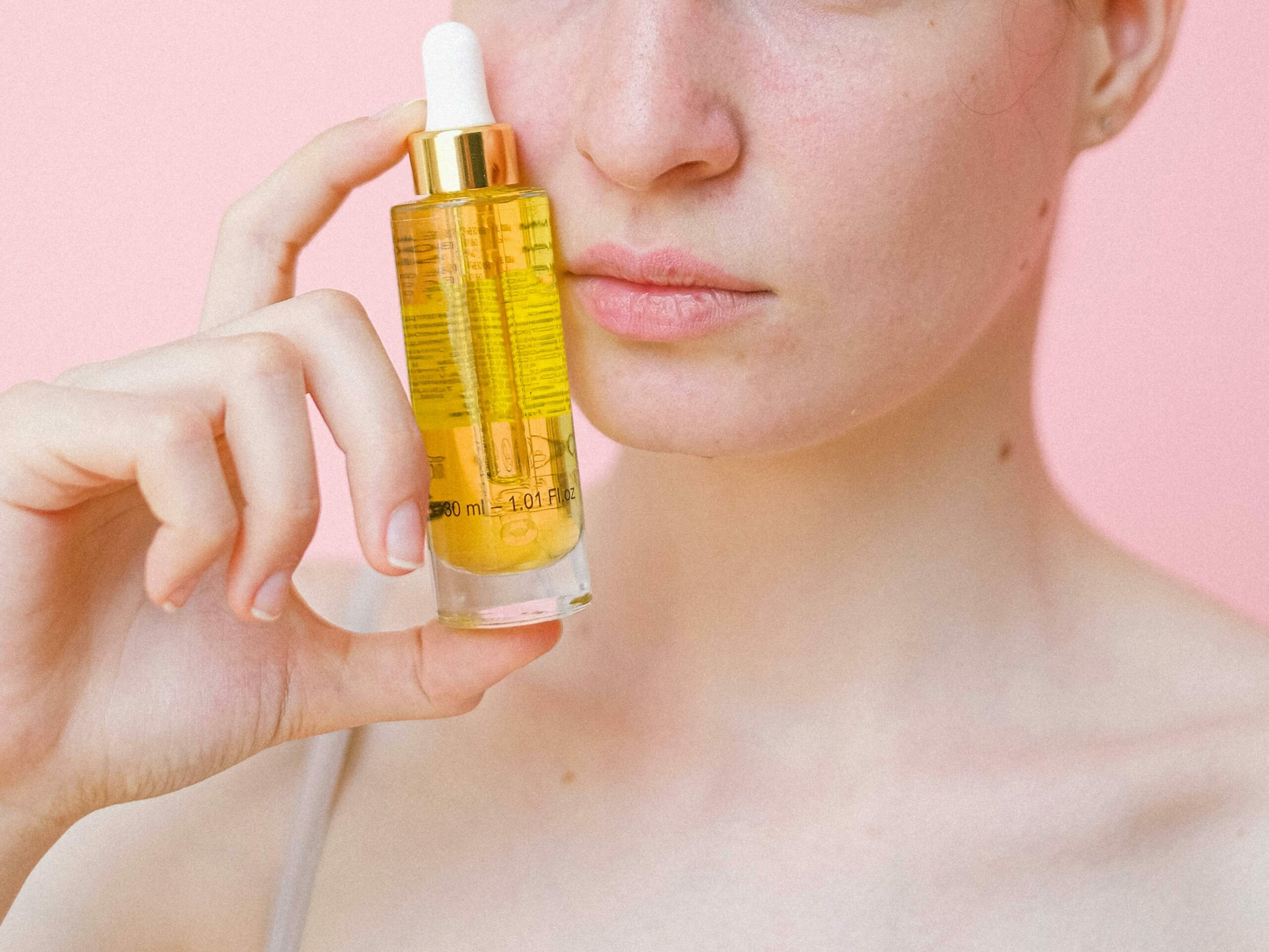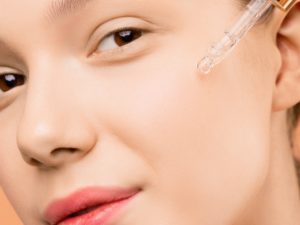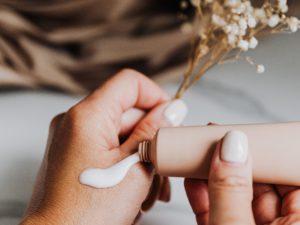Jojoba Oil is One of the Best for the Face and Body
When used correctly, facial oils can truly have incredible benefits for your skin, increasing the health of your skin barrier with ease. One in particular known as liquid gold, jojoba oil, is an absolutely brilliant option for almost every skin type there is.

Here is your complete guide to jojoba oil, including benefits, risks, how to choose the right product, and much more. Keep reading to find out how this facial oil can completely transform your skin almost instantly.
What are Facial Oils
Facial oils are oils that are extracted from various sources like plants and seeds. The way they are produced makes them safe for use on the skin of your face. There are many different types of facial oils such as jojoba, rose hip, coconut, almond, and many more. Each different type of facial oil has different properties and benefits. Depending on the type you choose, you get a buffet of vitamins, antioxidants, hydrating fatty acids, and protection.
Facial oils can be formulated as a blend of many different types of oils or added to moisturizers, serums, or other skin care products. The facial oil discussed today, jojoba, is very common in moisturizers due to its properties. You can also find facial oils that are 100% pure, extracted directly from the source. Facial oils tend to have occlusive and emollient properties. This means that they help to maintain the moisture levels of the skin, keeping the skin hydrated and refreshed. They are not a necessary part of a skincare routine, however, many people find that their properties keep the serums and moisturizers performing at a higher capacity.
The type of oil you choose depends on your skin issues, type, and concerns. For example, while coconut oil can be very beneficial to dry skin, it can harm acne-prone skin. Skin that requires balance can benefit from using rosehip oil. One of the best properties of jojoba oil is the fact that it can be used by almost every skin type due to its composition.
What is Jojoba Oil
Jojoba oil is made by extracting oil from the nut of the jojoba plant, which primarily grows in North America. It can also be found in Mexico and other countries with warm dry climates such as Argentina, Egypt, and Australia.
This is an evergreen plant that has long chain fatty acids, which is a unique property for plants or vegetables. About half of a jojoba seed is made up of oil, making the extraction of this facial oil easy. A cold press technique extracting this is the best, most natural way to make this skincare ingredient. Jojoba oil is about 98% wax, making it more of a liquid wax than an oil. It is usually light yellow or golden and tends to be well preserved due to its high levels of antioxidants that protect it from spoiling.
The composition of this oil is very similar to the sebum, or oil normally produced by the skin of humans. This oil also contains other fatty acids such as oleic oil, which is an oil found in Olive oil, and arachidonic oil, an oil that has been found to help in the repair and growth of tissue.
Benefits
Jojoba oil has many benefits. Due to its composition, it is very similar to the natural sebum our own skin produces. This makes it a good choice for many skin types as it will be a seamless addition to the skin. This makes it non-comedogenic, meaning that it is less likely to clog the pores, which will prevent acne and breakouts. This oil is also hypoallergenic, meaning it can be absorbed while also creating a barrier on the skin’s surface to protect us.
It is composed of wax, hydrating fatty acids, cholesterol, antioxidants, and vitamins. This makes it very moisturizing, allowing the skin to be supple and healthy. Jojoba oil has a high concentration of vitamin E, which can make it a great ingredient for softer, smoother skin. This vitamin will also help improve skin elasticity and prevent dryness and flakiness. Because of its composition, adding jojoba oil to your skin can help signal to your hair follicles that there is no need to produce excess sebum. This makes it a good option for people who have oily skin, as it could prevent our own skin from overproducing oils and logging our pores.
It is also considered an antibacterial and antifungal ingredient. It acts as an antioxidant which can help the skin fight off oxidative stress and reduce irritation caused by pollutants and other airborne toxins. These antioxidants can also help boost the body’s natural production of collagen which will help increase skin elasticity. Some of the ingredients in jojoba oil, such as vitamin E, have also been proven beneficial in wound healing. Jojoba oil is also good for skin conditions such as eczema due to its anti-inflammatory properties.
What Skin Type Should Use It?
As stated above, jojoba oil has a similar composition to the natural oil our own skin produces. This makes it beneficial to every skin type. If you have oily-prone skin, this oil can help balance out and reduce the oil your skin produces. Or maybe you have acne-prone skin? Well, this oil acts as an antimicrobial ingredient that can reduce acne and inflammation. If you have normal skin, this is an ingredient that can help boost collagen and reduce free radical damage from oxidative stress and airborne pollutants. Finally, if you have dry skin, this oil is very hydrating, and soothing, and the vitamin E in it will help moisturize and hydrate the skin barrier.
How to Use
How you use this skincare ingredient depends on the formulation. This is a facial oil that is commonly incorporated into moisturizers and serums. If you use it in a serum, make it one of the first steps in your skincare routine. When it is used in a moisturizer, it will be a thicker product that goes towards the end of a skincare routine, right before sunblock. If you are using jojoba oil as a facial oil in its pure form, it should be used after a moisturizer, but before sunblock. Apply a couple of drops to the palm of your hand and pat it into the face. Give it a couple of minutes to absorb, and then apply your sunscreen as normal.
Quick Tips for Oils
Here are some general tips for using skin care oils in your current routine. Make sure you follow these tips for a seamless incorporation of facial oils into your skincare routine.
- Patch Test – for any skin care product, you should always patch test it. All allergies to jojoba oil are uncommon, stranger things have happened. Therefore, it is important to test out the oil on your arm or leg to make sure you have no adverse reaction
- Add it Slowly – incorporate jojoba oil, or any skincare oil, slowly into your current skincare routine. Start with a couple times a week and increase to daily use if needed.
- Mix- make sure you are taking note of your skin condition. If you feel that jojoba oil is too thick on its own, try to mix it in with your current moisturizer.
The Takeaway
Jojoba oil is an absolutely incredible option for skin health and overall wellness. It has many benefits, including anti-inflammatory, antimicrobial, and antioxidant benefits. This oil is also rich in vitamins and hydrating ingredients and can help balance the oil of the skin. It can also help promote healing and collagen production greatly. This is an oil that can be used by every skin type as it is hypoallergenic, non-comedogenic, and has a composition that closely resembles the natural sebum production of our skin.
Remember that health comes from within. Eat nutritious food, exercise when you can, and take care of your mental health. Daily habits become the building blocks for emotional, mental, and physical health. Take care of your gut health too! Learn everything you need to know about gut microbiota today for free here.





